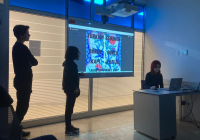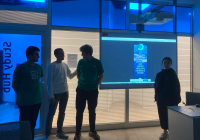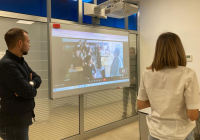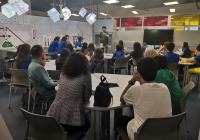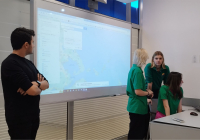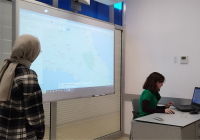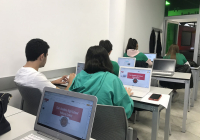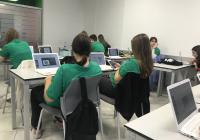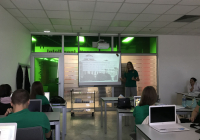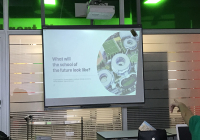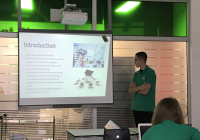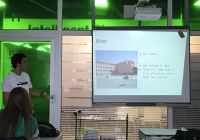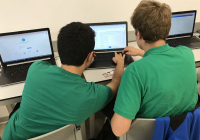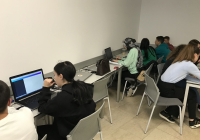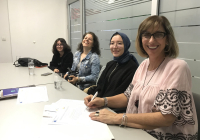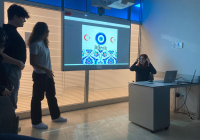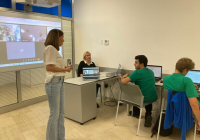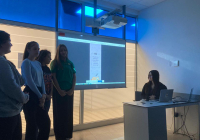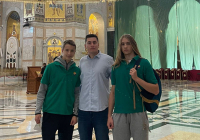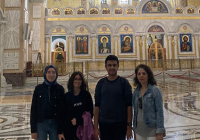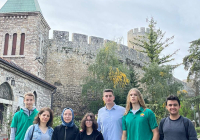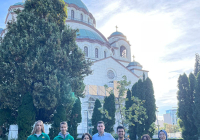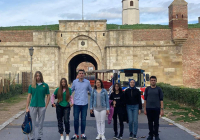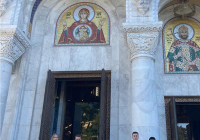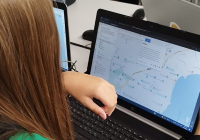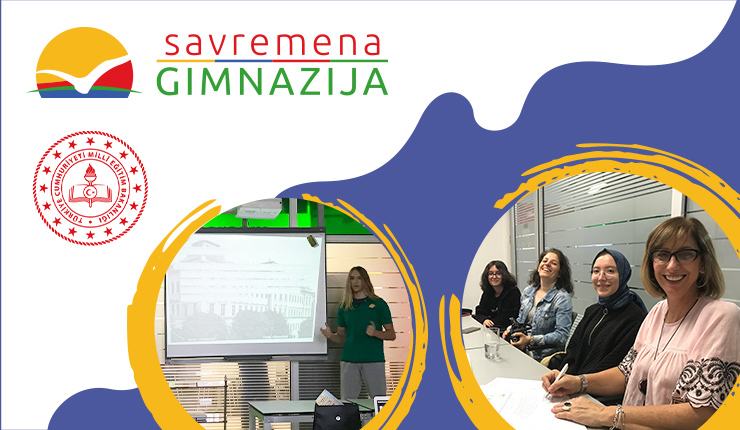
As part of the cooperation of Savremena Gimnazija with colleagues from Ankara and the "Ankara Provincial Directorate of National Education – Erasmus+ School Education Accreditation – Gazi Anadolu Lisesi Ankara" project, last week we hosted my colleague Nesrin Çetinkaya, an English teacher, and her students (Arman Ayten, Zeynep Bayrak and Emine Betul Onal).
They were led through modern education by Maja Merdović and Milica Aleksić, English language teachers, Aleksandra Babić, computer science and informatics teacher, Natalija Stanković, Latin language, religion and civilisation teacher, Vidak Pejović, history teacher, and Ivan Davidović, school pedagogue, as well as by classes II-5 and II-6.
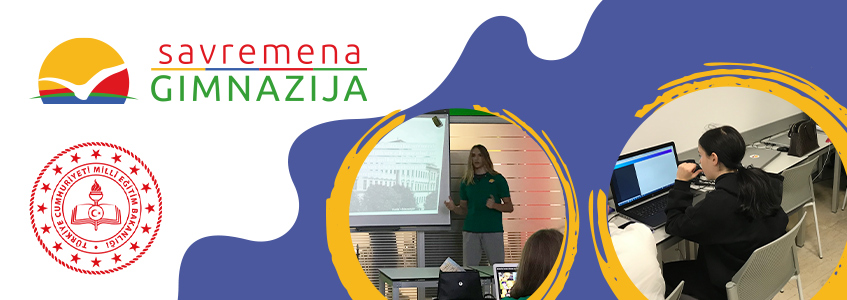 During their stay in Savremena, the guests participated in teaching activities and thereby acquired new skills that they will implement in their work upon their return to Turkey.
During their stay in Savremena, the guests participated in teaching activities and thereby acquired new skills that they will implement in their work upon their return to Turkey.
Within this Erasmus+ project, the following activities were organised by day and subject:
Tuesday, English: What would students change in their school?
The students were divided into three groups with the following tasks:
- Group I – school of the past;
- Group II – school of the future;
- Group III – Savremena Gimnazija.
After all three groups presented their works, students from Ankara presented their school. A constructive discussion followed, during which all students expressed their honest opinion about what they liked in their schools and what they would change. This task was done on computers and in Google Slides, with animations and videos where needed.
Tuesday, Physics: Experiments by Michael Gregory
On Tuesday, the guests from Turkey had the opportunity to see the experiments conducted by Professor Michael Gregory for first-grade students. Namely, Professor Michael, who visited our school to promote the concept of Science on Stage, performed experiments whose purpose was to bring electricity, the laws of physics and light to the students and explain it all to them in a practical and interesting way.
Wednesday, Computing and Informatics, English: Designing bookmarks
In the Computing and Informatics class, students of class II-6 worked on the task not only with guests from Turkey but also with those who were in Turkey at that moment, using the Google Meet platform.
The students' task was to design bookmarks using the Canva app. The inspiration for this mini-project was the celebration of the European Day of Languages (September 26).
English language teacher Milica Aleksić gave the students instructions, while Computing and Informatics teacher Aleksandra Babić monitored their work and provided the necessary support.
At the end of the class, the students presented their digital works, which were then made into real bookmarks. In this way, the students got to learn about the useful value of IT and language skills, but also took home a nice souvenir from our school, both for themselves and for their friends in Turkey.
Thursday, Latin: From the Trojan War to Romulus and Remus
In the Latin class, the students were divided into groups and given the task of using the Google Maps application to create an interactive map that will present the story that preceded the Trojan War, up to Aeneas' arrival in Italy and the founding of Rome. Legends and historical facts filled this interesting lesson. Students tried to find the most intriguing information in order to make this story as interesting as possible for their guests. The story began with the goddess Eris and the beautiful Helen, who was kidnapped by Paris and taken to Troy and ended with the story of the twins Romulus and Remus and an interesting way of determining who the ruler is.
Friday: Tour of Belgrade's sights
History professor Vidak Pejović with the students of Savremena showed his colleague and students from Turkey the sights of the city of Belgrade.
As the end result of the visit, the students will make video postcards from Belgrade and share their impressions of the places they visited.
At the end of the visit, Milka Keser, the school’s principal, gave the students from Turkey and her colleague Nesrin certificates for successfully completing tasks within the requirements of the Erasmus+ project.

